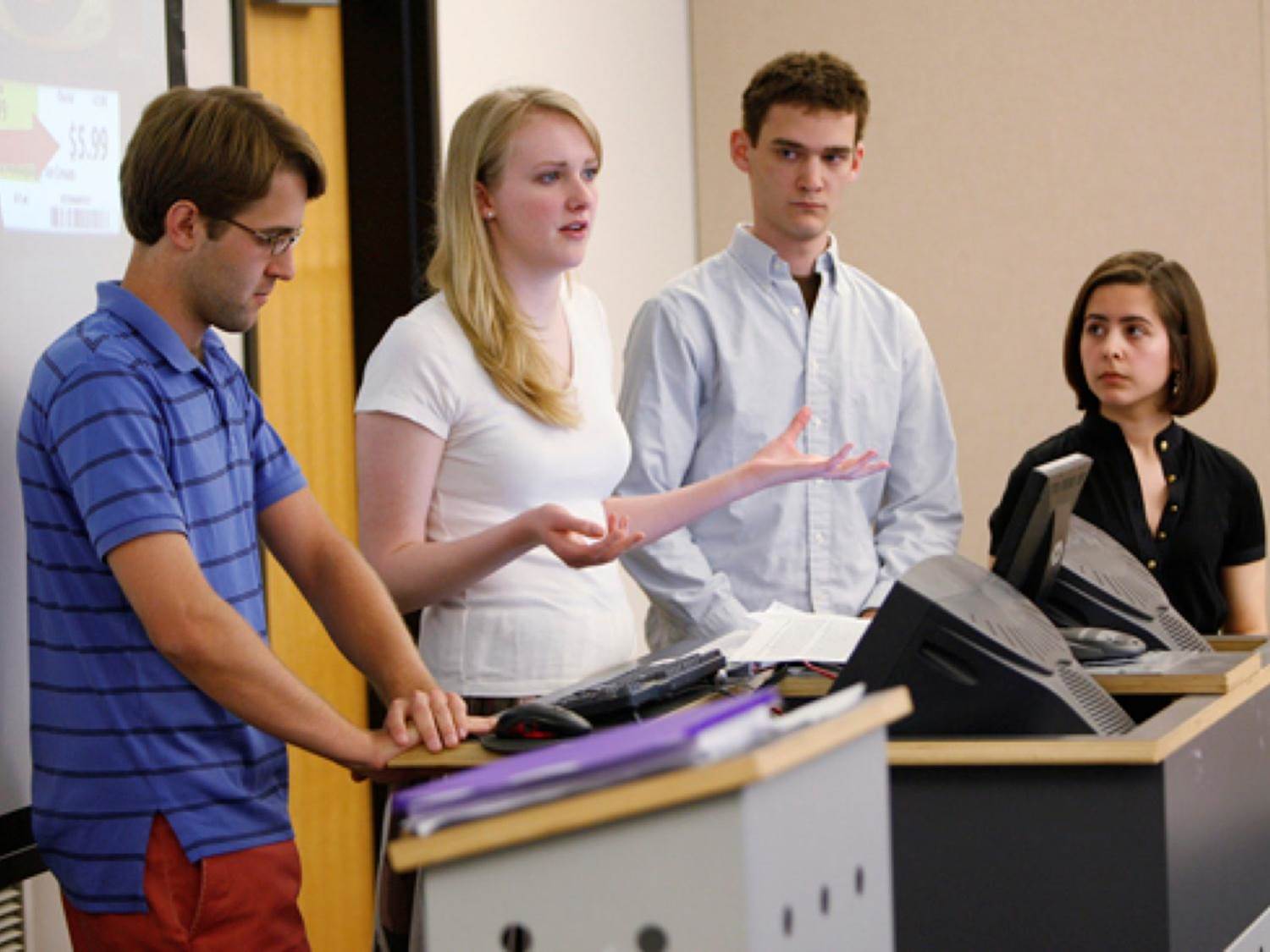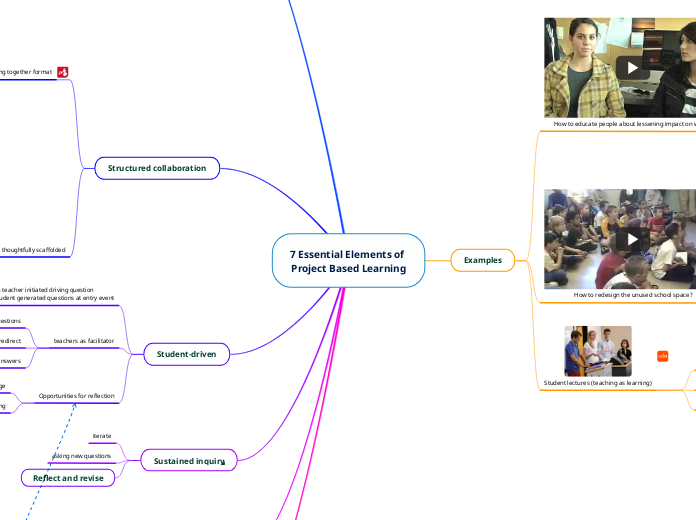7 Essential Elements of
Project Based Learning
Real-World Connection
authentic problem/question
"How might we..."
audience beyond classroom
needed by someone
draw experts in
via remote
instead of public presentation,
could be public product (e.g. display, podcast)
21st century/success skills
Structured collaboration
working together format
grouping by:
1) student choice
2) ability
3) heterogeneity
4) homogeneity
5) similar interests
group aim:
1) process (SEL growth, real-world simulation)
2) product (complimentary skillset)
grouping journey

same start to finish

bookend
(ideate together, independent research, get feedback, finish in original group)

catch and release
(ensures common understanding before individual works)

release and catch
(think-pair-share)
(group builds on individual thinking)
thoughtfully scaffolded
role cards
Tabletop instructions
Student-driven
from teacher initiated driving question
to student generated questions at entry event
teachers as facilitator
ask questions
redirect
hints, not answers
Opportunities for reflection
Consolidation stage
Running whiteboard of learning
Sustained inquiry^
iterate
asking new questions
Reflect and revise
Core to Learning
not added at end of unit
covers curriculum standards
(key knowledge/understanding)
Backward design
Multifaceted Assessment
(throughout)
Rubric
Tracking their own progress
formative

Fist to 5
peer
Examples
How to educate people about lessening impact on water?
Biology
water quality testing
tide measurements
ELA
Public education to inform audience
calendar
research exhibition
How to redesign the unused school space?
Finance
budgeting material, labour costs
Architecture
research, drafted, revised design ideas

Student lectures (teaching as learning)
topic of group's choosing
develop quizzes
public audience (other teachers)
